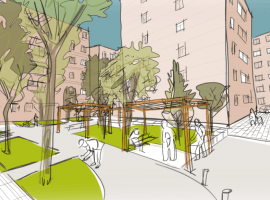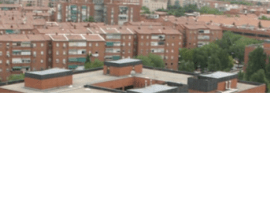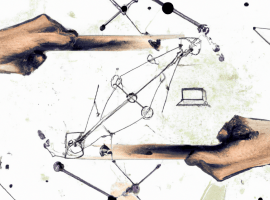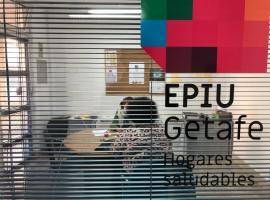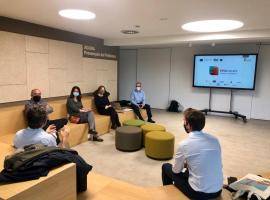One of the main outcomes from EPIU is the Healthy Households’ Office (OHS), a public local service displayed to identify situations of hidden energy poverty in Getafe. The design of an effective public service such as this office, requires time and organizational efforts from different areas in the municipality, so therefore, the launching is planned by the end of the year.
Vulnerable consumers would be identified and referred to the Healthy Households’ Office (OHS) to be assisted and assessed with tailored solutions. The image below shows an outline of how the service would work. The service is still under design phase and some aspects may differ at a later stage.

This public service will cover citizens from Margaritas and Alhóndiga’s neighbourhoods and will display around 200 solutions at different levels: household, dwelling and neighbourhood. One of the objectives of EPIU is to design and operate an intelligent data analytics system focused on the identification and prediction of energy poverty situations which will define clusters of population using data on energy consumption habits and real socio-demographic data, income or building characteristics. Therefore, the scope of the Healthy Households’ Office (OHS) is clear and, as the ultimate objective is to emerge hidden energy poverty situations, services provided by the office will need to collect data and information to feed the system learning process.
The initial planning was to design and prepare the structure of the OHS and then launch it directly and open it to citizens as this is the way local public services normally operate. However, this implementation methodology has risks as design under paper is not the same as reality. Furthermore, opening the OHS from zero would represent having no real data of implementation at the beginning. At this point, EPIU consortium started to swing the initial strategy to improve and ensure an effective service design.
EPIU initial planning also foresaw an activity called Oficina de barrio de los derechos energéticos (Energy Rights’ Office) to raise awareness amongst La Alhóndiga and Las Margaritas neighborhoods. This activity was planned to provide open energy advice for 3 months before the launching of OHS to create an energy culture in the targeted areas. However, if widening the scope of this activity, the contact with citizens could provide with valuable data and information to better outline the Healthy Households’ Office (OHS).
Therefore, and having this awareness action foreseen, EPIU consortium evaluated the possibility to swing and pivot this activity into a pilot OHS office. The idea of launching a pilot of OHS would give the chance to test the service in the real conditions and users and will provide the intelligent data system with data. Instead of a minimum viable product (MVP), it can be called a minimum viable service (MVS) as this piloting experience will allow EPIU team to evaluate the service before it is released in Getafe by the end of the year. Furthermore, it would be an opportunity to make EPIU visible at targeted neighborhoods.





